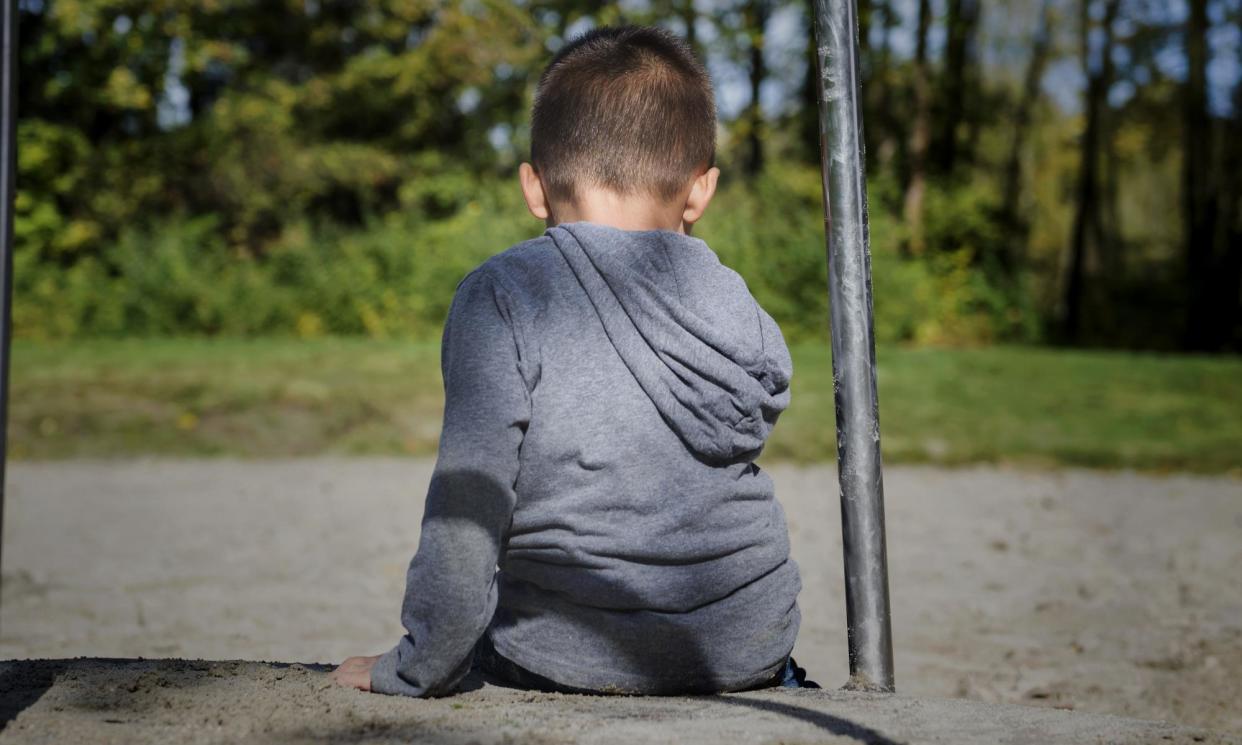Labor’s deportation bill could affect 375 children born in Australia, advocates warn

Asylum seeker advocates have warned 375 Australian-born children could face orders to cooperate with their removal from the country under Labor’s deportation bill – because they’ve had protection claims denied under the controversial fast-track method.
The home affairs department has revealed that as at 31 December 375 people born in Australia who are fast-track applicants had been refused temporary protection or a safe haven enterprise visa.
The fast-track process was established by the Abbott government in 2014 and has been criticised, including by Labor, for refusing to allow applicants to submit new material during a review except in exceptional circumstances.
The data on children born in Australia was released in answer to a question on notice from February’s Senate estimates. The government insists that not all 375 can be given directions to cooperate with removal because the number includes some with legal challenges on foot and individuals from countries that don’t accept involuntary deportees.
It comes after officials revealed at a Senate inquiry on Monday that up to 5,000 non-citizens could receive orders to cooperate with their removal from the country, much higher than initially estimated.
The Albanese government’s deportation bill creates an offence with a mandatory minimum jail sentence of one year for an unlawful non-citizen refusing to cooperate with their deportation and gives the immigration minister powers to blacklist new visa applications from countries that refuse involuntary deportations.
On Wednesday parliament’s human rights committee, chaired by Labor MP Josh Burns, criticised the bill’s mandatory minimum sentences as “incompatible with the rights to liberty and to a fair trial”.
Advocates are concerned that people whose claims to protection were rejected under the Immigration Assessment Authority’s “unfair” fast-track refugee determination system could be deported.
That’s despite Labor’s 2021 platform calling for the abolition of the “fast track assessment process”, and the Albanese government introducing legislation in late 2023 to do so from July 2024.
In February the Greens senator Nick McKim asked the department: “How many of the legacy caseload refused temporary protection under the [fast-track] system have children born in Australia?”
The answers to questions on notice reveal that “as at 31 December 2023, 375 people born in Australia who are fast track applicants have been refused a temporary protection or safe haven enterprise visa”.
There are a further 80 fast track applicants in immigration detention who were refused protection visas as of February.
David Shoebridge, the Greens immigration spokesperson, said: “The Albanese government acknowledges that the fast track system has unfairly rejected thousands of asylum claims, and is moving to abolish it, while ramming through laws that add to that unfairness by jailing its victims.
“Under these cruel plans nearly 400 children are now faced with the real threat that they will be separated from their parents, or sent overseas to face a hostile and unknown future.”
Shoebridge noted the minister “doesn’t need to have any regard to the best interests of children when issuing a direction to their parents”, which he labelled a “breach of international law, and also basic dignity”.
A government spokesperson said: “If individuals do not engage protection obligations, are not awaiting a merits or judicial review outcome, and have exhausted all avenues to remain in Australia, they are expected to depart Australia voluntarily.
“If individuals have changed country or personal circumstances they may apply for ministerial intervention.”
Sanmati Verma, the legal director at the Human Rights Law Centre, said: “There is nothing in the bill that would prevent a ‘removal direction’ being made in respect of a child born in Australia.
“Removal directions could easily be issued requiring the parent of an Australian citizen child to consent to [their own] removal, even if it would result in their child being taken into state care.
“We are working with a number of families who have been failed by the fast-track process, and whose Australian-born children are now citizens.
“This bill is a direct attack on these families – it would allow parent to be jailed if they refused to be separated from their children.”
The former immigration department deputy secretary Abul Rizvi told the Senate inquiry on Monday that the fast-track cohort who could be subject to directions “may be upwards of 7,500 people”.
“Given the legitimate criticisms of the fast-track process – and the fact those people have now been living and contributing to Australian society for over a decade – this parliament should find a way to provide those persons with a pathway to permanent residence,” he said.
Related: Refugee Sayed Abdellatif freed after almost 12 years in Australian immigration detention
The home affairs department secretary, Stephanie Foster, told the inquiry that directions punishable by a year in prison are a “measure of last resort” and the best interests of children are protected by existing policies.
Foster said the department acknowledged the concerns of those who gave evidence particularly in relation to family unity, but she warned that “most” had roles in advocacy.
“We remain strongly of the view the bill is an important measure to take to protect the integrity [of the migration system],” she said.
Foster noted the bill does not expand the cohort of people who are required to be removed from Australia.


